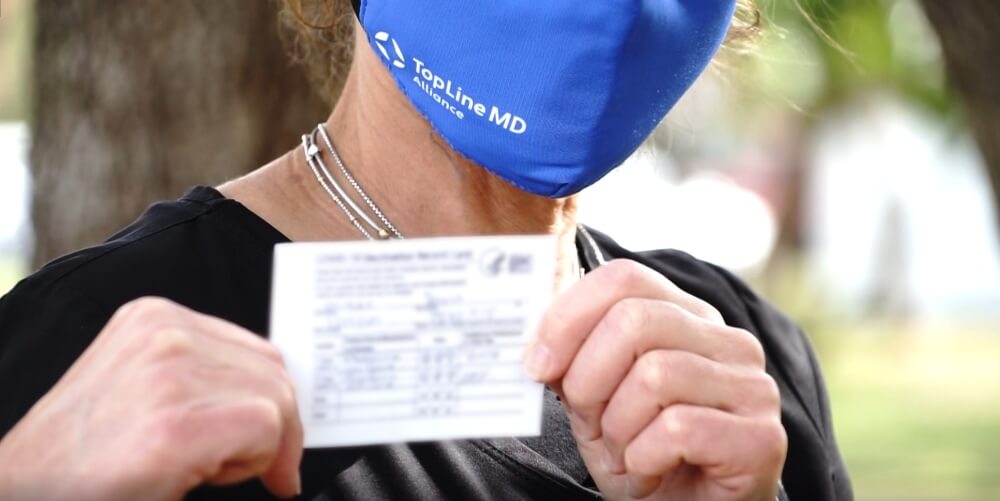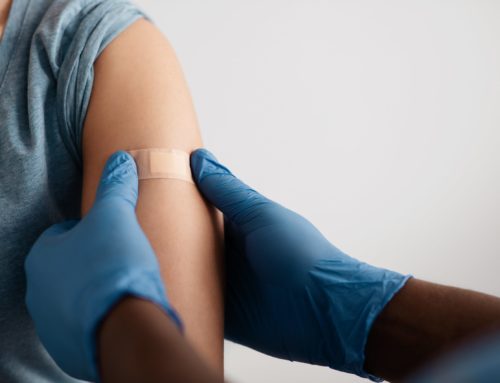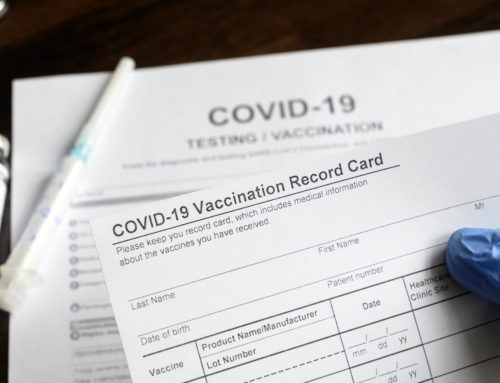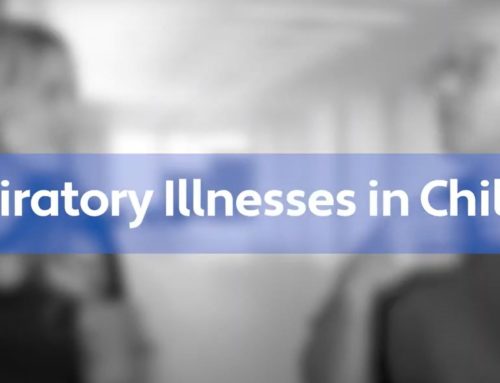
There are two approved mRNA COVID-19 vaccines that require 2 doses that are approved for distribution in Florida: the Moderna vaccine and the Pfizer-BioNTech vaccine. For more information on where you can schedule your vaccine, and when you will be eligible, please visit the Florida Department of Health.
These COVID-19 vaccines require two doses to be effective, so be sure to schedule your second dose as soon as possible after receiving the first dose and ensure it is within the recommended timeframe. The Moderna vaccine requires a minimum of 28 days between your first and second dose, and the Pfizer-BioNTech vaccine requires a minimum of 21 days. The CDC does not recommend mixing the Moderna and Pfizer-BioNTech vaccines, so be sure to schedule appointments with the same vaccine manufacturer for each dose. An important consideration after being fully vaccinated is that your body will need approximately 1-2 weeks after the second dose to build protection against the virus. In the interim, it’s recommended that you continue to wear a mask in public, wash your hands, and practice social distancing.
To learn more about what to expect upon receiving the COVID-19 vaccine, continue reading below.
Understanding mRNA COVID-19 Vaccines
The 2-dose COVID-19 vaccines are known as mRNA vaccines, a brand-new technology that uses the body’s healing response as a weapon against the virus. These types of vaccines carry strands of mRNA that, when active in the body, will instruct the body to create a spike protein unique to SARS-CoV-2, also known as the virus that causes COVID-19. The immune system will then respond to the protein, building immunity against the virus in the process.
The mRNA COVID-19 vaccines available in Florida are shown to be at least 95% effective at preventing COVID-19 and vaccines that are currently in development or applying for authorization will only be approved if they can prove to significantly decrease the chance of contracting the virus. More importantly, current vaccines on the market have shown that they are effective in preventing people from getting seriously ill from the coronavirus, therefore reducing hospitalizations, which can help take the strain off of the US healthcare system.
If you’ve already contracted COVID-19, it’s still important to consider getting vaccinated. Though there seems to be some level of immunity after infection, there is not enough information or research that confirms natural immunity for more than 90 days after contracting the virus. To prevent life-threatening complications from a second COVID-19 infection, and to prevent spreading illness to friends, family, and coworkers, the vaccine is still recommended regardless if someone has had COVID-19 or not.
Along with vaccination, the CDC recommends that people continue to social distance themselves and wear masks in public.
Common Side Effects of the COVID-19 Vaccine
Many people who receive COVID-19 vaccination may experience side effects as your body is building up protection against the virus. Some common side effects include:
- Pain and swelling on the arm where you get the shot
- Fever
- Chills
- Fatigue
- Headache
Contact your physician if any of these symptoms persist for more than a few days, or if the pain and inflammation in your arm increases after 24 hours.
To help soothe the discomfort from pain or swelling on your arm, you can use a clean, cool washcloth and apply it to the area for 15 minutes at a time. It’s important to exercise your arm, to allow for proper blood flow for healing. If your arm remains still, the pain may persist longer.
If you develop a low-grade fever or experience continuous pain or discomfort after vaccination, contact your physician to discuss taking an over-the-counter pain reliever, such as acetaminophen or ibuprofen. Make sure to drink plenty of fluids and dress in lightweight clothing if you find it will help.
Possible Reactions to the Vaccine
Many people are concerned about allergic reactions to the vaccines. According to the CDC, there have been a rare number of severe allergic reactions after receiving COVID-19 vaccination. An allergic reaction, called anaphylaxis, is considered severe if the patient requires epinephrine administered with an Epi-Pen. To prevent severe reactions from occurring, patients who are allergic to ANY of the ingredients found in the mRNA vaccine should not get the vaccine, and if you have a severe allergic reaction after the first dose, you should not receive a second dose. If you have a history of allergic reactions to vaccinations, please speak with your physician before receiving the first dose.
Known allergic reactions to the COVID-19 vaccine has become a huge concern for those considering whether or not to get vaccinated. For most people, fear of how the vaccines and allergies interact should not prevent you from getting vaccinated or at least considering it. Speak with your physician if you have any concern about known allergies and how they might interact with the vaccine. You and your physician can discuss the best options for you and your health.
Though reactions to vaccinations are uncommon, it’s important to listen to your body and contact your vaccination site administrator or physician if you feel like something is wrong after getting the vaccine.
For more information on COVID-19 vaccines, especially as it relates to Florida residents, visit www.toplinemd.com/covid-19/vaccines.
The TopLine MD Alliance is an association of independent physicians and medical practice groups who are committed to providing a higher standard of healthcare services. The members of the TopLine MD Alliance have no legal or financial relationship with one another. The TopLine MD Alliance brand has no formal corporate, financial or legal ties to any of the affiliated physicians or practice groups.



